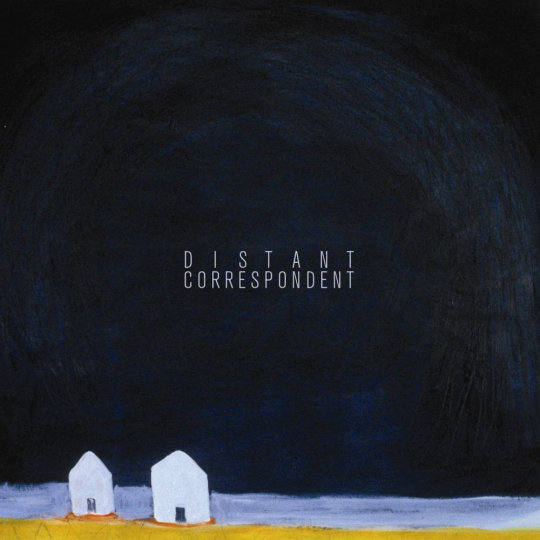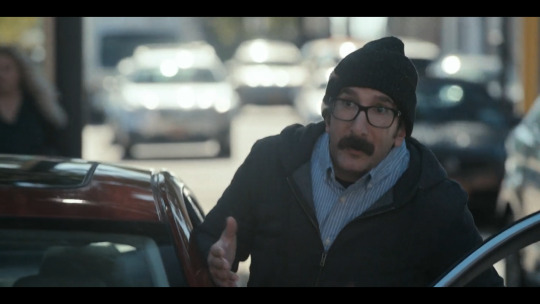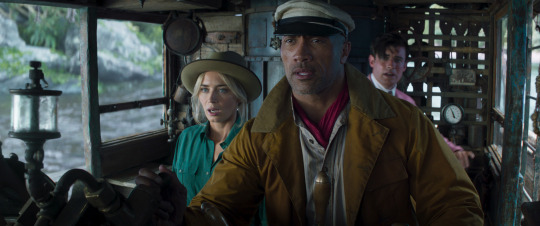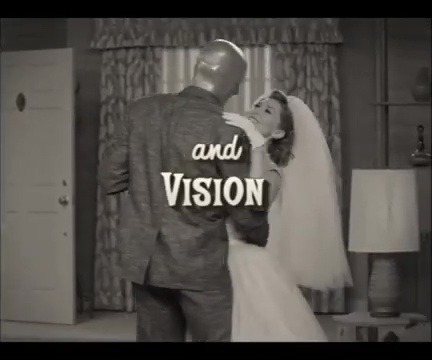#David Lengel
Note
The bibliography sounds SO cool! Can you share some of your sources as a kind of sneak peek??
Hey, Anon! Sorry this is so late but I’d be happy to! These citations are a little informal but I’m working on cleaning them up. Here’s some of the primary and secondary materials I’m using (for Volume I of The American Icarus specifically):
Primary Materials
Hamilton, Alexander. The Papers of Alexander Hamilton, vols. 1-2. Ed. Syrett, Harold C. Columbia University Press, 1961-1962 (Digitized in partnership with the National Archives And Records Administration onto Founders Online here).
Laurens, John. The Army Correspondence of Colonel John Laurens, in the Years 1777-8, Now First Printed from Original Letters Addressed to His Father, Henry Laurens, President of Congress, with a Memoir Ed. Simms, William Gilmore. Bradford Club, 1867 (Digitized by the University of South Carolina here).
Washington, George. The Papers of George Washington, Revolutionary War Series, vols. 8-15. Ed. Chase, Philander D. Grizzard, Frank E. Jr. Hoth, David R. Lengel, Edward G. University Press of Virginia, 1997-2006 (Digitized in partnership with the National Archives And Records Administration onto Founders Online here).
Secondary Materials
Harris, Michael C. Brandywine: A Military History of the Battle That Lost Philadelphia But Saved America, September 11, 1777 Savas Beatie, 2014
Herrera, Ricardo, A. Feeding Washington's Army: Surviving The Valley Forge Winter of 1778 The University of North Carolina Press, 2022
Newton, Michael E. Alexander Hamilton: The Formative Years Eleftheria Publishing, 2015
Lefkowitz, Arthur, S. George Washington’s Indispensable Men: Alexander Hamilton, Tench Tilghman, And the Aides-De-Camp Who Helped Win American Independence Stackpole Books, 2003
#grace's asks#thanks for the ask!#the american icarus#TAI#alexander hamilton#amrev#writers on tumblr#historical fiction#amwriting#american history#writing community#bibliography#historical research#historical letters#the american revolution#history
6 notes
·
View notes
Text

Distant Correspondent
I'm usually highlighting recent-ish records for these Bandcamp Monday situations, but let's take things back a little bit to celebrate a woefully under-celebrated record — the lone long-player from Distant Correspondent, released 10 years ago this week. There's no expanded reissue of the album, but maybe there should be! Distant Correspondent is a classic slice of dream pop featuring the dulcet tones of Drag City superstar Edith Frost, haunting guitars worthy of The Cure's Faith and David Obuchowski's extraordinary skills as a songwriter and arranger.
The cherry on top is Emily Gray (formerly of Meanwhile Back In Communist Russia), who adds her poetic/melancholic reveries to the mix — I hesitate to call it "spoken word;" there's an uncanny musicality to her vocals here, adding a drama and tension that you won't find many other places. And we'd be remiss if we didn't mention the one-man rhythm section of Michael Lengel, whose sense of dynamics ensures that the songs have deep and shifting textures. Give this one a spin, you won't regret it ...
(And full disclosure — after Distant Correspondent was recorded, I actually joined Distant Correspondent for a little while there, touring the country! Yes, dear reader, I liked this record that much.)
2 notes
·
View notes
Text
24 Days of La Fayette – Day 16: François-Louis Teissèdre de Fleury
Today’s aide-de-camp is François-Louis Teissèdre de Fleury, Marquis de Fleury and son of François Teisseydre de Fleury. He was born in 1749 and first served in the French army as a volunteer from 1768 onwards. In 1772 he was made sous-aide-major in the Rouergue Regiment.
While La Fayette and his group of fellow travelers are certainly among the most famous foreign personal in the continental army, their idea was by no means novel. There were several groups of Frenchman that tried one way or another to join the War in America (and for one reason or another). Fleury was part of such a group - and he was one of the, comparatively speaking, few successful ones.
He was made a Captain of Enginers by the Continental Congress on May 22, 1777 and was awarded 50 Dollar for his travelling expenses. William Heath wrote to George Washington on April 26, 1777:
The Three appear to be Officers of Abilities—They inform me that Mr Dean promised them that their Expences should be born to Philadelphia &c.—I must confess I scarcely know what to do with them, & wish Direction, I have advanced to Col. Conway, as advance pay 150 Dollars to enable him to proceed to Philadelphia—And to Capt. Lewis Fleury 50 Dollars—The latter is engaged as a Capt. Engineer.
“To George Washington from Major General William Heath, 26 April 1777,” Founders Online, National Archives, [Original source: The Papers of George Washington, Revolutionary War Series, vol. 9, 28 March 1777 – 10 June 1777, ed. Philander D. Chase. Charlottesville: University Press of Virginia, 1999, pp. 277–280.] (12/16/2022)
He was initially assigned to a corps of rifleman but soon got promoted and re-assigned after he fought with distinction at the Battle of Brandywine, where his horse was shot from under him. A Boston newspaper wrote on December 4, 1777:
The Chevalier du Plessis, who is one of General Knox’s Family, had three Balls thro’ his Hat. Young Fleuri’s Horse was killed under him. He shew’d so much Bravery, and was so useful in rallying the Troops, that the Congress have made him a Present of another.
“Extract from a Boston Newspaper, [after 4 December 1777],” Founders Online, National Archives, [Original source: The Papers of Benjamin Franklin, vol. 25, October 1, 1777, through February 28, 1778, ed. William B. Willcox. New Haven and London: Yale University Press, 1986, pp. 244–245.] (12/16/2022)
Fleury also participated in the Battle of Germantown, where, in classical La Fayette-fashion, he was wounded in the leg. The General Orders from October 3, 1777 read as follows:
Lewis Fleury Esqr. is appointed Brigade Major to The Count Pulaski, Brigadier General of the Light Dragoons, and is to be respected as such.
“General Orders, 3 October 1777,” Founders Online, National Archives, [Original source: The Papers of George Washington, Revolutionary War Series, vol. 11, 19 August 1777 – 25 October 1777, ed. Philander D. Chase and Edward G. Lengel. Charlottesville: University Press of Virginia, 2001, pp. 372–375.] (12/16/2022)
Fleury was ordered to defend Fort Mifflin on November 4, 1777, where he would be engaged in the attack on Fort Mifflin on November 15 of the same year. Fleury was again wounded but even more important, he kept a very detailed journal and his entries from October 15-19 were often cited to illustrate the events surrounding the attack.
Concerning his wounds (and his personal value) Colonel Samuel Smith wrote to George Washington on November 16, 1777:
Major Fleury is hurt but not very much. he is a Treasure that ought not to be lost.
To George Washington from Lieutenant Colonel Samuel Smith, 16 November 1777,” Founders Online, National Archives, [Original source: The Papers of George Washington, Revolutionary War Series, vol. 12, 26 October 1777 – 25 December 1777, ed. Frank E. Grizzard, Jr. and David R. Hoth. Charlottesville: University Press of Virginia, 2002, pp. 281–282.] (12/16/2022)
La Fayette became aware of Fleury’s brave conduct and wrote to Henry Laurens on November 18, 1777:
You heard as soon almost as myself of all the interesting niews on the Delaware. The gallant defense of our forts deserves praisespraise and her daughter emulation arethe necessary attendants of an army. I am told that Major Fleury and Captain du Plessis have done theyr duty. It is a pleasant enjoyement for my mind, when some frenchmen behave a la francoise, and I can assure you that everyone who in the defense of our noble cause will show himself worthy of his country shall be mentionned in the most high terms to the king, ministry, and my friends of France when I’l be back in my natal air.
Idzerda Stanley J. et al., editors, Lafayette in the Age of the American Revolution: Selected Letters and Papers, 1776–1790, Volume 1, December 7, 1776–March 30, 1778, Cornell University Press, 1977, pp. 151-153.
George Washington had recommended Fleury and as a result of this recommendation, Fleury was commissioned a Lieutenant Colonel on November 26. La Fayette was very much in Fleury’s favour, and he wrote again to Henry Laurens on November 29, 1777:
The bearer of my letter is Mr. de Fleury who was in Fort Miflin, and as he is reccommanded by his excellency I have nothing more to say but that I am very sensible of his good conduct. (…) Mr. de Fleury receives just now the commission of lieutenant colonel, I think he wo’nt go to day to Congress, and I send this letter by one other occasion (…)
Idzerda Stanley J. et al., editors, Lafayette in the Age of the American Revolution: Selected Letters and Papers, 1776–1790, Volume 1, December 7, 1776–March 30, 1778, Cornell University Press, 1977, pp. 160-161.
Fleury was also recommended by Colonel Henry Leonard Philip, Baron d’Arendt, the commander of Fort Mifflin. Arendt wrote to Alexander Hamilton on October 26, 1777:
Col. Smith who is well acquainted with this place, its defence, and my Intentions respecting them, will make every necessary arrangement in my absence to maintain harmony between himself and Colo. [John] Green—I must do him the justice to say that he is a good Officer and I wish America a great many of the same cast. I must render the same justice likewise to Maj. Fleury who is very brave and active.
Notes of “To George Washington from Brigadier General David Forman, 26 October 1777,” Founders Online, National Archives, [Original source: The Papers of George Washington, Revolutionary War Series, vol. 12, 26 October 1777 – 25 December 1777, ed. Frank E. Grizzard, Jr. and David R. Hoth. Charlottesville: University Press of Virginia, 2002, pp. 13–16.] (12/16/2022)
George Washington also had something to say about this quarrel between his soldiers. He wrote to James Mitchell Varnum on November 4, 1777:
I thank you for your endeavours to restore confidence between the Comodore & Smith—I find something of the same kind existing between Smith and Monsr Fleury, who I consider as a very valuable Officer. How strange it is that Men, engaged in the same Important Service, should be eternally bickering, instead of giving mutual aid. Officers cannot act upon proper principles who suffer trifles to interpose to create distrust, & jealousy (…)
“From George Washington to Brigadier General James Mitchell Varnum, 4 November 1777,” Founders Online, National Archives, [Original source: The Papers of George Washington, Revolutionary War Series, vol. 12, 26 October 1777 – 25 December 1777, ed. Frank E. Grizzard, Jr. and David R. Hoth. Charlottesville: University Press of Virginia, 2002, pp. 128–129.] (12/16/2022)
I do not praise you often, but in this case I will – well said, Sir!
There was no division in the army at the present that Fleury could assume command of and he was therefor appointed sub-inspector under the Baron von Steuben. The General Orders from April 27, 1778 read:
Lieutt Coll Fleury is to act as Sub-Inspector and will attend the Baron Stuben ’till Circumstances shall admit of assigning him a Division of the Army—Each Sub-Inspector is to be attended daily by an Orderly-Serjeant drawn by turns from the Brigades of his own Inspection that the necessary orders may be communicated without delay.
“General Orders, 27 April 1778,” Founders Online, National Archives, [Original source: The Papers of George Washington, Revolutionary War Series, vol. 14, 1 March 1778 – 30 April 1778, ed. David R. Hoth. Charlottesville: University of Virginia Press, 2004, pp. 657–658.] (12/126/2022)
La Fayette, in the meantime, was lobbying for Fleury and other French officers – apparently to a degree or in a way that he later was unwilling to admit. The following passage was removed by the Marquis from a letter to George Washington from January 20, 1778:
I am told that Mullens is to be lieutenant colonel, if it is so, as that the same commission was done for Mssrs. de Fleury and du Plessis who are on every respect so much out of the line of Mullens who being by his birth of the lowest rank, and not so long ago a private soldier, I hope that those gentlemen are to be at least brigadier generals.
Idzerda Stanley J. et al., editors, Lafayette in the Age of the American Revolution: Selected Letters and Papers, 1776–1790, Volume 1, December 7, 1776–March 30, 1778, Cornell University Press, 1977, pp. 238-239.
It was around this time that preparations for the Canadian expedition were made – an expedition under La Fayette’s command that never came into fruition and probably was never really intended to do so. It was here that Fleury was appointed aide-de-camp to La Fayette. Horatio Gates wrote to our Marquis on January 24, 1778:
Congress having thought proper and in compliance with the wishes of this Board, from a Conviction of your Ardent Desire to signalize yourself in the Service of these States, to appoint you to the Command of an Expedition meditated against Montreal it is the Wish of the Board that you would immediately repair to Albany, taking with you Lt. Colo. de Fleury, and such other gallant French officers as you think will be serviceable in an Enterprise in that Quarter. (…)
Idzerda Stanley J. et al., editors, Lafayette in the Age of the American Revolution: Selected Letters and Papers, 1776–1790, Volume 1, December 7, 1776–March 30, 1778, Cornell University Press, 1977, pp. 249-250.
La Fayette in his turn wrote to Henry Laurens on February 4 and on February 7, 1778 respectively to inform him of the proceedings. He also used the opportunity to get a word for Fleury in and to gossip a bit about the same.
There is Lieutenant Colonel Fleury who not only out of my esteem and affection for him but even by a particular reccommandation of the board of war is destinated to follow me to Canada. I schould have desired of Congress every thing or employement which I could have believed more convenient to his wishes, had I not expected to see him before-you know he was upon my list. He desires to be at the head of an independent troop with the rank of Colonel. I do’nt know which will be the intentions of Congress but every thing which can please Mr. de Fleury not only as a frenchman but as a good officer, and as being Mr. de Fleury will be very agreable to me. (…) I have showed to Colonel Fleury the first lines of my letter, in order to let him know my giving willingly the reccommandation he asks for you. You know that gentleman's merit and that Duplessis and himself were made lieutenant colonels as reward of fine actions.
Idzerda Stanley J. et al., editors, Lafayette in the Age of the American Revolution: Selected Letters and Papers, 1776–1790, Volume 1, December 7, 1776–March 30, 1778, Cornell University Press, 1977, pp. 279-280.
You have seen Mr. de Fleury. I fancy entre nous that he will not be satisfied in so high pretensions. He is very unhappy that Mr. Duer is no more in Congress because he is his intimate friend and confident-that will perhaps surprise you.’ Mr. de Fleury is entre nous a fine officer but rather too ambitious. When I say such things I beg you to burn the letters.
Idzerda Stanley J. et al., editors, Lafayette in the Age of the American Revolution: Selected Letters and Papers, 1776–1790, Volume 1, December 7, 1776–March 30, 1778, Cornell University Press, 1977, pp. 282-283.
Henry Laurens replied on February 7, 1778 and his wording at the end especially is quite interesting given La Fayette’s previous letter.
I had the honour this Morning of receiving your Commands by the hands of Lt. Colo. Fleury. This Gentleman notwithstanding the aid of some able advocates in Congress has failed in his pursuit of a Colonel's Commission. You will wonder less, when you learn that the preceeding day I had strove very arduously as second to a warm recommendation from a favorite General, Gates, on behalf of Monsr. Failly, for the same Rank, without effect. The arguments adduced by Gentlemen who have opposed these measures, are strong & obvious. “We are reforming & reducing the Number of Officers in our Army, let us wait the event, & see how our own Native Officers are to be disposed of”-& besides, there is a plan in embrio for abolishing the Class of Colonel in our Army, while the Enemy have none of that Rank in the Field. Some difficulty attended obtaining leave for Monsr. Fleury to follow Your Excellency, Congress were at first of opinion he might be more usefully employed against the shipping in Delaware & formed a Resolve very flattering & tempting to induce him-but his perseverence in petitioning to be sent to Canada, prevailed. Monsr. Fleury strongly hopes Your Excellency will encourage him to raise & give him the Command of a distinct Corps of Canadians. I am persuaded you will adopt all such measures as shall promise advantage to the Service & there is no ground to doubt of your doing every reasonable & proper thing for the gratification & honour of [a] Gentleman of whom Your Excellency speaks & writes so favorably.
Idzerda Stanley J. et al., editors, Lafayette in the Age of the American Revolution: Selected Letters and Papers, 1776–1790, Volume 1, December 7, 1776–March 30, 1778, Cornell University Press, 1977, pp. 284-285.
With the failure of the expedition, Fleury once again longed for an independent command and La Fayette wrote to Charles Lee in June of 1778:
One of the best young french officers in America Mr. de Fleury wishes much to be annexed to the Rifle Corps and is desired by Clel. Morgan.
Idzerda Stanley J. et al., editors, Lafayette in the Age of the American Revolution: Selected Letters and Papers, 1776–1790, Volume 2, April 10, 1778–March 20, 1780, Cornell University Press, 1978, pp. 62-64.
In the end, Fleury was given command of a light infantry battalion on June 15, 1779. The General Orders for that day read as follows:
The sixteen companies of Light-Infantry drafted from the three divisions on this ground are to be divided into four battalions and commanded by the following officers;
4. companies from the Virginia line by Major Posey.
4—ditto from the Pennsylvania line by Lt Colo. Hay.
4—ditto two from each of the aforesaid lines by Lieutenant Colonel Fleury.
“General Orders, 15 June 1779,” Founders Online, National Archives,[Original source: The Papers of George Washington, Revolutionary War Series, vol. 21, 1 June–31 July 1779, ed. William M. Ferraro. Charlottesville: University of Virginia Press, 2012, p. 176.] (12/16/2022)
He led his battalion into the attack of Stony Point on July 16, 1779. His conduct was, by all accounts, heroic and George Washington wrote on September 30, 1779:
Colo. Fleury who I expect will have the honour of presenting this lettr. to you, and who acted an important & honourable part in the event, will give you the particulars of the assault & reduction at Stony Point (…) He led one of the columns – struck the colours of the garrison with his own hands – and in all respects behaved with intrepidity & intelligence which marks his conduct upon all occasions.
Idzerda Stanley J. et al., editors, Lafayette in the Age of the American Revolution: Selected Letters and Papers, 1776–1790, Volume 2, April 10, 1778–March 20, 1780, Cornell University Press, 1978, pp. 313-319.
His actions were indeed so gallant that Congress awarded him a silver medal on July 26, 1779. This is indeed quite remarkable since he was the only foreign officer thus honoured. No other foreign officer, not even La Fayette, received such a silver medal during the Revolutionary War.
Fleury obtained a leave of absence from Congress in September of 1779 and left America on November 16. La Fayette was at this time in France as well and was eager to receive a first-hand account from Fleury with respect to political as well as to military matters. Although still in possession of his American commission, Fleury re-entered the French army and was made a Major of the Saintonge Regiment in March of 1780 (this might interest you @acrossthewavesoftime.) A few months later, in July of 1780, he joined General Rochambeau’s expeditionary force. Fleury was one of the French soldiers at the Battle of Yorktown. He left America for good in January of 1783 and sailed from Boston to France. It was only at this point, that he resigned his American commission. In France, he joined the Pondichéry Regiment and was named its Colonel. He was elevated to a maréshal de camp in 1791 and fought in the battle of Mons on April 28-30, 1792. During the retreat, he was wounded for the third time. While his previous injuries were all relative mild, this one appears to have been rather serious. He resigned from the army not long after.
Not much is known about Fleury’s later life, and I have seen drastically different accounts of the time of his death. While some editors of (La Fayette’s) letters/papers have put the date of his death around 1814, it is far more likely that he died in 1799. Fleury never married and there are no known children of his.
François Louis Teisseydre, Marquis de Fleury’s legacy is the De Fleury Medal that is granted to outstanding members of the United States Army Corps of Engineers.
#24 days of la fayette#la fayette's aide-de-camps#marquis de lafayette#french history#la fayette#american history#american revolution#french revolution#letter#history#francois louis teisseydre#marquis de fleury#1777#1778#1772#1779#1780#1783#battle of yorktown#stony point#fort mifflin#henry laurens#george washington#battle of brandywine#battle of germantown#1799#1791#1792#1814#founders online
17 notes
·
View notes
Note
Fics and books, please!
— your friendly neighborhood spideyman
Hello again friendly neighborhood spideyman!! I’m so happy to see that you’re back!! ☺️☺️
As far as fics go….I tag all of the stories I’ve read under #10/10 would recommend - you should be able to find a multitude of amazing stories from a bunch of amazing writers there.
I keep a personal reading list in my ‘likes’, which I call my ‘to-reads’ … and I’ll usually bump the story from my likes to my 10/10 tag once I’ve read it. It would take me eons to list all of the fics in my likes on this post, so I’ll share some of the authors that I know are in there (as well as my fav history books) under the cut so this doesn’t get too long.
Before I get into it, I just want to say that messages like these absolutely MAKE. MY. DAY. I have so much fun talking to y’all about everything and anything, so please don’t hesitate in jumping into my ask box at any hour of the day!
Ok so for my ‘to-read’ list: I’ve got a good number of fics by @padfootdaredmetoo , @look-at-the-soul , @zablife (particularly her corrupt a wish fics that I liked ages ago but still haven’t read, and I really need to get on it) , @shelbydelrey , and @acewritesfics (who was previously ‘sunsetbeachesandwriting’) that I need to get into reading…also @cillmequick ‘s latest Lockdown installment too…I just know that they’re all going to be amazing, so I suggest you check their blogs out.
Now onto the second part of your ask (if you’re still reading this, thank you!!!) …. I’ll preface this by saying all of the books that I read are nonfiction and centered around history. They’re also mostly focused on US history (as I’m from the US).
The Smell of Battle, The Taste of Siege by Mark M. Smith (American Civil War) - it focuses on one of the most interesting ways to study/analyze conflict: through the five senses.
The Worst Hard Time by Timothy Egan (The Dust Bowl/The Great Depression) - the narratives that this author provides of people who lived through this incredibly trying time are so gripping…I believe it’d be an interesting read even for someone who doesn’t like history.
The Dalton Boys by David Allin (American West/Outlaws) - a super, super interesting book about a gang of brothers who were lawmen turned outlaws. It’s written in the style of a story, so it’s super easy to follow and very exciting at times.
Stampede by Brian Castner (Gold Rush in the Klondike) - another super interesting book that details the stories of those who went to Alaska during its gold rush. There’s a lot of struggle and strife, and Jack London’s (the author of Call of the Wild) in it too.
Never In Finer Company by Edward G. Lengel (WWI) - I’ve not finished this book, but what I read of it was super, super interesting. It focuses on the ‘lost battalion’ of American soldiers that were stranded in the Argonne Forest during the war. I watched a movie based off of it in a high school history class way back when, so it was pretty cool to find this book on it.
I’m currently reading a book called This Republic of Suffering by Drew Gilpin Faust. It’s about death and the American Civil War and it has been super interesting so far. If you’re ever interested, feel free to check back on me some time from now to see if I got anywhere on the book and if my thoughts have changed.
This got long, didn’t it?? 😅😅 if you made it this far, thanks so much for reading my babbles on my history books…I think I can go all night honestly haha….but I won’t, I promise. Thanks so much again for sending this in, spideyman anon…I really appreciate you dropping into my ask box!! ☺️❤️
6 notes
·
View notes
Text
A Black WWII tank battalion rescued from obscurity - CBS News
Oscar-winning actor Morgan Freeman is narrator and executive producer of the History Channel documentary "761st Tank Battalion: The Original Black Panthers," about one of only a few African-American tank battalions that saw combat in World War II, at a time when the armed forces were still segregated. He talks with CBS News national security correspondent David Martin about the importance of bringing the story of the 761st to light.
Joe Boutte's insight:
🎖️ Honoring the Heroes of the 761st Tank Battalion 🎖️
Did you know about the "Black Panthers" of World War II? The 761st Tank Battalion, an African American armored unit, fought with distinction in a time when racial segregation was the norm in the US military. These brave soldiers faced prejudice both at home and on the frontlines but proved their valor, fighting in campaigns across Europe including the Battle of the Bulge. Their courage went on to pave the way for the eventual desegregation of the Armed Forces.
Their motto, "Come out fighting," not only encapsulated their wartime resolve but also their determination for equality in a racially divided nation. Let's remember and celebrate these heroes today and always. Their story is a testament to the fact that bravery knows no color.
CBS Sunday Morning highlights this fighting unit and rescues this American history from obscurity as Morgan Freeman vows to tell their story in a new documentary.
Thanks to Trezzvant W. Anderson, war correspondent who wrote a contemporaneous account of the 761st Tank Battalion. His book, "Come Out Fighting: The Story of the 761st Tank Battalion - The First Black Tankers to Fight in World War II," was based on his firsthand experiences covering the battalion as a reporter. Anderson's account provides a unique perspective, offering insights into the daily lives, challenges, and triumphs of the battalion from someone who was there to witness them. It is an invaluable piece of history that captures the spirit and valor of the 761st amidst the backdrop of World War II.
In 1992, a documentary titled The Liberators: Fighting on Two Fronts in World War II was produced. The documentary depicted the battalion's liberation of concentration camps during 1945, but was criticized for misidentifying the units and camps involved. There was speculation that the movie was intended to reduce tensions between the Jewish and African-American communities.
In 2007, executive producer Steven A. White released an independent, feature length, high-definition documentary on the 761st Tank Battalion. The film, entitled 761st was written, produced, and directed by Pete Chatmon and produced by 761st Tank Battalion unit historian, Wayne Robinson. It features interviews with eleven combat veterans of the 761st and is narrated by Andre Braugher.
Several of the later episodes of The History Channel series Patton 360 featured 761st veteran William McBurney who related his experiences with the battalion in the Lorraine Campaign, the Battle of the Bulge, and in the ultimate conquest of the German homeland.
In 2017, the National Park Service published a book titled The 761st Tank Battalion: The Original Black Panthers. The book was written by Edward G. Lengel, a historian and author who has written extensively about World War II.
Additionally, Kareem Abdul Jabbar and Anthony Walton wrote one of the most prominent histories of the 761st in "Come Out Fighting: The Epic Tale of the 761st Tank Battalion, 1942-1945." This book tells the inspiring story of the 761st Tank Battalion and how they bravely fought against both the enemy abroad and racism at home.
Other notable books and collections about the 761st included:
Michael James: In his 2011 book The Forgotten Warriors: African American Troops in World War II, James tells the story of the 761st Tank Battalion and other African American units that fought in World War II.
Wayne Robinson: Robinson, a former 761st Tank Battalion soldier, is the author of several books about the battalion, including The 761st Tank Battalion: History and Memories of the Original Black Panthers.
Ken Stohr: Stohr, a journalist, wrote a series of articles about the 761st Tank Battalion for the Pittsburgh Post-Gazette in 2006. These articles were later collected into a book titled The Black Panthers of World War II.
The National World War II Museum: The museum has a significant collection of materials about the 761st Tank Battalion, including oral histories, photographs, and documents.
#761stTankBattalion #BlackPanthers #HeroesOfWWII
0 notes
Photo

WandaVision 1.03 - “Now In Color″
size: 1920x1080
1,640 screencaps
#wandavision#wandavisionedit#marveledit#marveldaily#dailymarvel#screencaps#elizabeth olsen#paul bettany#kathryn hahn#teyonah parris#emma caulfield ford#david payton#david lengel#randy oglesby#hd screencaps#grandecaps#kissthemgoodbye#capped by lastsongs
32 notes
·
View notes
Text

Oh my God it’s Phil
9 notes
·
View notes
Text
All Aboard! Disney's 'The Jungle Cruise' Arrives in July!
All Aboard! Disney’s ‘The Jungle Cruise’ Arrives in July!
The Jungle Cruise starring Dwayne Johnson and Emily Blunt hits theaters July 30! Take a look at the trailer and get ready for a wild ride!
(more…)

View On WordPress
#Allan Poppleton#Andy Nyman#Ben Jenkin#Brooke Taylor#Caroline Paige#Chip Steele#Christina Souza#Dan Carter#Dani Rovira#David Lengel#Diederik Verhoef#Dwayne Johnson#Edgar Ramirez#Emily Blunt#Glenn Ficarra#Hector Banos#Ismael Herrera#Jack Whitehall#James Quattrochi#Jason New#Jaume Collet-Serra#Jesse Plemons#John Requa#Josue Gutierrez#Justin Brooke#Keith Bolden#Luis Burbano III#Mark Ashworth#Mia Shaw#Michael Cole
3 notes
·
View notes
Text
#FridayFakeCinemaClub - Friday 5th March 2021 = Coming 2 America
#FridayFakeCinemaClub – Friday 5th March 2021 = Coming 2 America
Week 9! Luckily I eventually watched Coming to America for the first time this year just in time for this sequel to be released! Should be a nice lighthearted film after last weeks brutal film!
Starring: Eddie Murphy, Arsenio Hall, Jermaine Fowler, Leslie Jones, Tracy Morgan, KiKi Layne, Shari Headley, Teyana Taylor, Wesley Snipes, and James Earl Jones.
Plot: The African monarch Akeem learns he…

View On WordPress
#FridayFakeCinemaClub#2021#Amazon Prime Video#Arsenio Hall#Capone#Comedy#Coming 2 America#David Lengel#Eddie Murphy#Friday Fake Cinema Club#Garcelle Beauvais#Jack Lowden#James Earl Jones#Jermaine Fowler#John Amos#KiKi Layne#Kyle MacLachlan#Leslie Jones#Linda Cardellini#Matt Dillon#Netflix UK#Noel Fisher#Shari Headley#Teyana Taylor#Tom Hardy#Tracy Morgan#Wesley Snipes
1 note
·
View note
Text
Jungle Cruise (2021)
Jungle Cruise by #JaumeColletSerra starring #DwayneJohnson and #EmilyBlunt, "a thoroughly joyless experience", today's review on MyOldAddiction.com
JAUME COLLET-SERRA
Bil’s rating (out of 5): B.5
USA, 2021. Davis Entertainment, Flynn Picture Company, Seven Bucks Productions, TSG Entertainment, Walt Disney Pictures, Zaftig Films. Screen story by John Norville, Josh Goldstein, Glenn Ficarra, John Requa, Screenplay by Michael Green, Glenn Ficarra, John Requa. Cinematography by Flavio Martinez Labiano. Produced by John Davis, Beau Flynn, John…

View On WordPress
#Allan Poppleton#Andy Nyman#Édgar Ramírez#Beau Flynn#Ben Jenkin#Brooke Jaye Taylor#Caroline Paige#Chip Steele#Christina Souza#Dan Dargan Carter#Dani Rovira#Dany Garcia#David Lengel#David Paris#Davis Entertainment#Dwayne Johnson#Emily Blunt#Flavio Martinez Labiano#Flynn Picture Company#Glenn Ficarra#Hector Banos#Hiram Garcia#Ismael Herrera#Jack Whitehall#James Newton Howard#James Quattrochi#Jaume Collet-Serra#Jean-Vincent Puzos#Jesse Plemons#Joel Negron
0 notes
Text
Review: Jungle Cruise
"With Jungle Cruise you are in for a rip-roaring ride that is simply what a Summer Blockbuster should be"
Read our review of Jungle Cruise here
#JungleCruise @disneyplusuk @therock @junglecruise
Disney’s “Jungle Cruise” releases in cinemas and on Disney+ with Premier Access on July 30, 2021.
Jungle Cruise harkens back to the family adventure movies in the realms of Pirates of the Caribbean, The Mummy (Brendan Fraser ones, not the hideous Tom Cruise version), Indiana Jones and such like. Add a generous helping of Dwayne ‘The Rock’ Johnson, Emily Blunt, Jack Whitehall and you have the…

View On WordPress
#adventure#Allan Poppleton#Andy Nyman#Ben Jenkin#Brooke Taylor#Caroline Paige#Chip Steele#Christina Souza#Dan Carter#Dani Rovira#David Lengel#David Paris#disney#Disney+#Dwayne Johnson#Edgar Ramirez#Emily Blunt#Hector Banos#Ismael Herrera#Jack Whitehall#James Quattrochi#Jesse Plemons#Jungle Cruise#Justin Brooke#Keith Bolden#Kevin LaRosa#Mark Ashworth#Michael Cole#movie#Nothing Else Matters
0 notes
Text
FANDOM! LIGHT THE FIRES OF GONDOR AND SPREAD THE WORD! WE HAVE AN AOS FAMILY REUNION! JEFF, ELIZABETH, IAIN, AND CLARK!
@eclecticmuses has ended me with his and is not sorry.
Ward and Stees wrote and directed the audio show which is structured as a public radio documentary hosted by an investigative journalist (Emma Roberts) who explores a failed business partnership and the resulting legal spat. Ward and Stees star as Joel and Jed Toade, two hapless “entrepreneurs” in tech who have failed spectacularly. Henstridge plays their new business partner Julie Burke, a tech entrepreneur down on her luck. The show is made up of recordings of video conference calls between these three characters.
“Conference Call” features guest appearances by Christopher Abbott (“Catch-22”), Demi Adejiyugbe (“The Late Late Show”), Joyce Aimee (“PEN15”), Beck Bennett (“SNL”), Iain DeCaestecker (“Agents of S.H.I.E.L.D.”), Clark Gregg (“Avengers: End Game”), Nick Kocher (“SNL”), David Lengel (“Wandavision”), Grant O’Brien (“CollegeHumor”), and Aaron Schroeder (“Adam Ruins Everything”). The U.S. series is executive produced by Paradiso’s Emi Norris and produced by Molly O’Keefe.

GUYS WE COULD HAVE ELIZABETH AND IAIN DO A THING TOGETHER! WE COULD HAVE ALL OF THEM TOGETHER! FITZSIMMONS FAMILY! BONUS CLARK!
SEND HELP!
SPREAD THE NEWS!
FANDOM MAMA DOWN!

#agents of shield#aos cast#fitzsimmons#fitzsimmons family#phil coulson#y'all not okay#nope#not okay at all
43 notes
·
View notes
Photo






WandaVision - Disney+ - January 15, 2021 - March 5, 2021
Sitcom (9 episodes)
Running Time: 30 minutes
Stars:
Elizabeth Olsen as Wanda Maximoff / Scarlet Witch
Paul Bettany as Vision
Debra Jo Rupp as Mrs. Hart
Fred Melamed as Arthur Hart
Kathryn Hahn as Agnes
Teyonah Parris as "Geraldine" / Monica Rambeau
Kat Dennings as Darcy Lewis
Randall Park as Jimmy Woo
Jolene Purdy as Beverly
Asif Ali as Norm
David Lengel as Phil Jones
Amos Glick as Dennis
Emma Caulfield Ford as Dottie Jones
David Payton as Herb
Ithamar Enriquez and Victoria Blade appear as the man and woman in the fake commercials
5 notes
·
View notes
Text
I gotta ask... has anyone else noticed that David Lengel looks like David Schwimmer??? lmaooo


8 notes
·
View notes
Photo

WandaVision 1.08 - “Previously On”
size: 1920x1080
2,785 screencaps
#wandavision#wandavisionedit#marveledit#marveldaily#screencaps#elizabeth olsen#paul bettany#kathryn hahn#julian hilliard#jett klyne#josh stamberg#debra jo rupp#david payton#david lengel#hd screencaps#grandecaps#kissthemgoodbye#capped by lastsongs
14 notes
·
View notes
Text
the list seemed
I never knew what I was sent for . give me information 1
to sign my name on the dotted line but I never knew what I was signing 2
and I never knew what I was missing 3
I never knew what I was dealing with… It just goes to show, you never know. 4
and for that matter I never knew what I was until much later 5
all kinds of old parts and tools, I never knew what I was looking at but I knew 6
Until I tried it, I never knew what I was 7
I never knew what I was going to be questioned about 8
I never knew what I was aiming at and why 9
I never knew what I was singing and I didn’t have a clue what was going on 10
(and she replied, “I never knew what I was getting myself into.”) 11
I never knew what I was supposed to do during a quiet time.
Read one verse?
Is a chapter enough?
Maybe I should memorize the whole book.
The list seemed both empty and endless. 12
I never knew what I was missing I was missing 13
I never knew what I was going to find 14
I never knew what I was going to hear, 15
I never knew what I was going to say 16
I never knew what I was going to say until I said it — the words just came out 17
I never knew what I was looking for. 18
I never knew what I was looking for but always found something, 19
I never knew what I was going to do. Fortunately something usually developed 20
I never knew what I was doing until ten minutes after I had done it, 21
I never knew what I was doin’. It used to worry me 22
all day long. I never knew what I was 23
I never knew what I was supposed to be perfect at and what didn’t matter. 24
I never knew what I was supposed to say, so I said nothing and 25
I always dreaded removing bandages for fear of hemorrhage.
I never knew what I was going to find. 26
I never knew what I was missing when 27
sources
1
ex Minutes of Evidence Taken before the Lancaster Bribery Commission, 28 August 1866, in Report of the Commissioners appointed to inquire into the Existence of Corrupt Practices at the last Election for Members to serve in Parliament for the Borough of Lancaster; together with the minutes of evidence: Vol 13 (of 24) (1867) : 38
OCR cross-column misread
2
ex Tony’s story, in Valerie Polakow, Lives on the Edge : Single Mothers and Their Children in the Other America (1993; pb edn, 1993) : 65
3
ex Ronald J. Lavin, Way to Grow! : Dynamic Church Growth Through Small Groups (1996) : 76
4
ex James Wilcox (1949- *), Miss Undine’s Living Room: A Novel (2001) : 152
5
ex Bernie Matthews, Intractable (2007) : here
6
ex Mark Roehrig, The Amphigeo Story, The first and only “how to book” enabling you to build your own amphibious car (Trafford, 2002) : 20
7
ex Tommy Watson, A Face of Courage: The Tommy Watson Story — How Did He Survive? (2008) : 95
8
ex Denise George, Chapter 8, “Sometimes I’m overwhelmed with anxiety,” in What Pastors Wish Church Members Knew : Understanding the needs, fears, and challenges of church leaders today (2009) : 101
9
ex Thomas R. Hauff, When God Says, “No” : Reshaping Prayer and Learning to Listen (2010) : 41
10
“It had all been in Latin...” ex Carol Ann Rusch, This Lady Here : I'll Drink to That (2010) : 172
11
ex David Kamara, Overcoming Gossips (2007) : 2
12
ex Emily P. Freeman, Chapter 12, “Remain, on quiet and time” in Grace for the Good Girl : Letting Go of the Try-Hard Life (2011) : 141
13
ex Rahab Kimani, Deeply in Love : Poetic Love Stories (2012) : 60
14
ex Connie Martin and Barry Dundas, Love Never Ends (2012) : 137
15
ex Jane Gillooly on her On Suitcase of Love and Shame, in Scott MacDonald his Avant-doc : Intersections of Documentary and Avant-garde Cinema (2015) : 338
16
ex Curt Lindner, Fighting the Good Fight : Faith Through the Adversity of Terminal Cancer (2012) : 30
17
ex Herbert D. Blake, The Last Place I Looked : A Story of Hope, Inspiration, Transformation, and Restorative Justice (2013) : 37
18
ex Bruce Kelley, Ernetta Fox, Justin Smith, Preparing Your Campus for Veterans’ Success : An Integrated Approach to Facilitating The Transition and Persistence of Our Military Students (2013) : 25
19
ex Miljenko Jergovic, Mama Leone, translated from the Croatian by David Williams (2012) : 11
20
ex John Franceschina, Hermes Pan : The Man Who Danced with Fred Astaire (2012) : 133
Hermes Pan[aglotopoulos] (1909-1990) — wikipedia
21
C. Everette Hagler, Breathless : An Inward Journey (2013) : 370
22
ex Gerald Olson, “Seven Come Eleven, Baby Needs a New Pair of Shoes,” in Random Runes : New Poems & Old Elegies (2013) : 111
23
ex Lisa Unger, In the Blood : Chilling grip-lit with a breathtaking twist you won’t see coming (2014) : here
24
ex Ann W. Smith, Overcoming Perfectionism : Finding the Key to Balance and Self-Acceptance (2013) : here
25
ex Edward Bryant, “The Cutter,” in Ellen Datlow, ed., The Cutting Room : Dark Reflections of the Silver Screen (2014) : 1-14 (2)
26
from a passage in Nurse Elizabeth Weaver’s description of an operating room at a base, quoted in Kathy Warnes, “Remembering and Forgetting Meuse-Argonne: The Shifting Sands and Partitioned Perspectives of Memory,” in Edward G. Lengel, ed., A Companion to the Meuse-Argonne Campaign (2014) : 472-495 (476)
27
ex Gail Nall, Breaking the Ice (2015) : 115
notes —
The construct “I never knew what I was” appears only once in a pre-1923 Google Books search, surfacing again only in 1994, with frequent appearances thereafter..
Strict chronology didn’t work, music and sense-wise, but — less strict — remains a limit.
The initial idea was that sources would be given only for extended extracts, and/or where the source — on its own trajectory, in its own context — drew me further down its path. In the end, I cited all 27. Some — numbers 19, 26 — were more interesting than others, but I depended equally on each one. Several of these sources are self-published.
20200712
7 notes
·
View notes